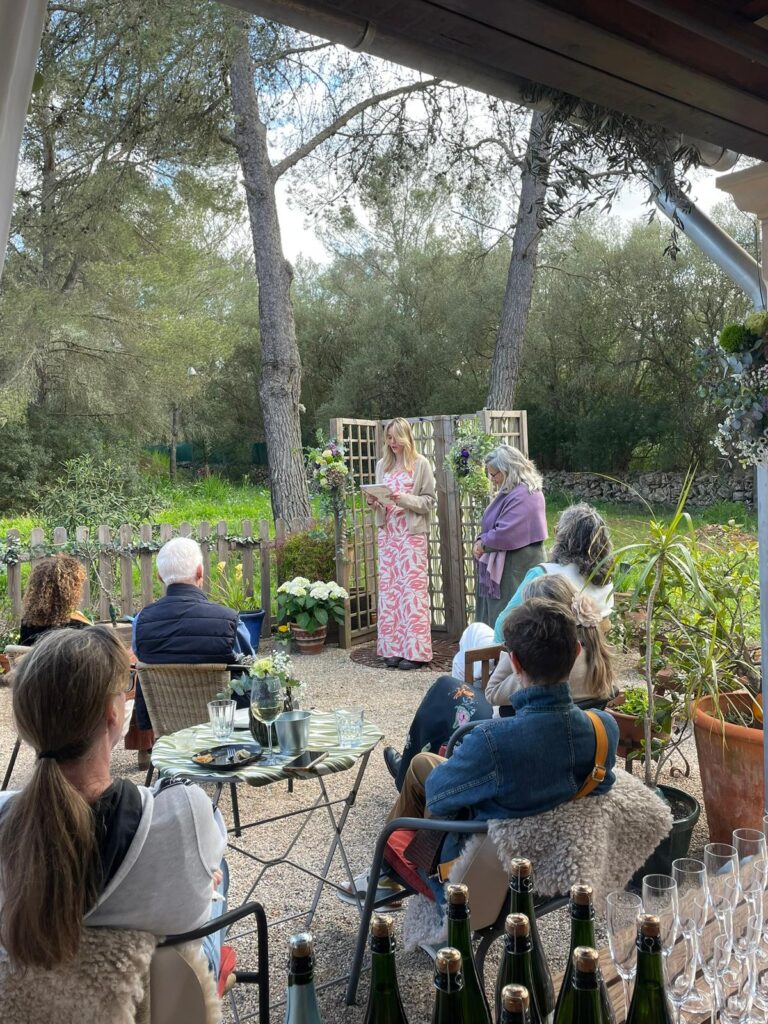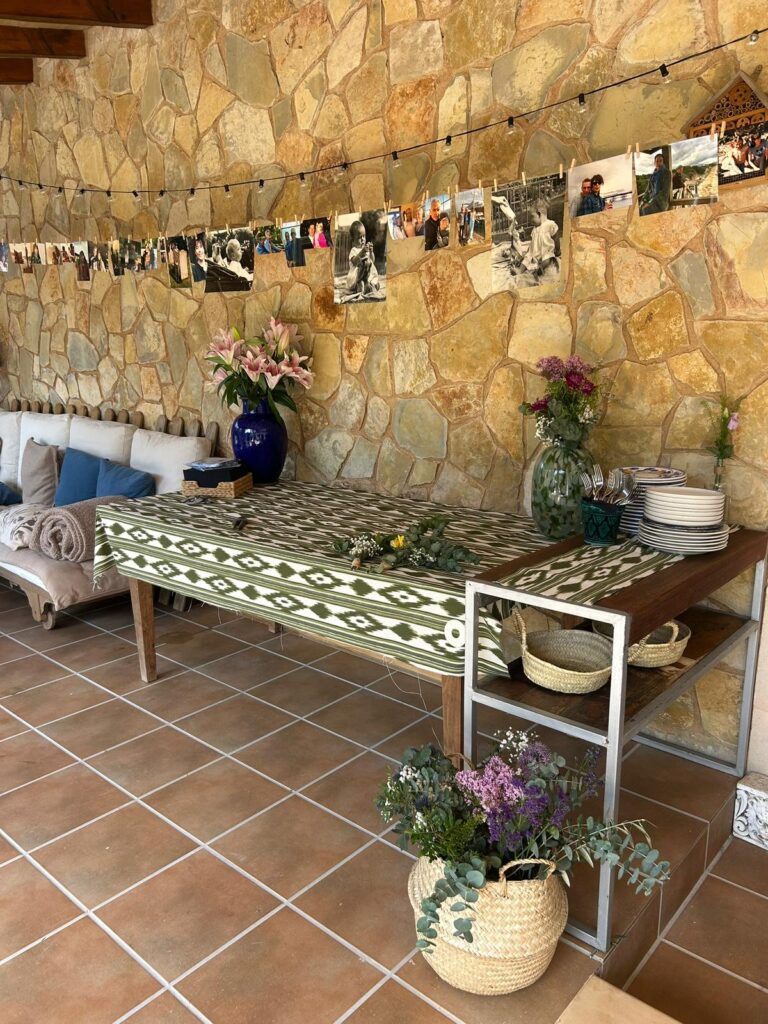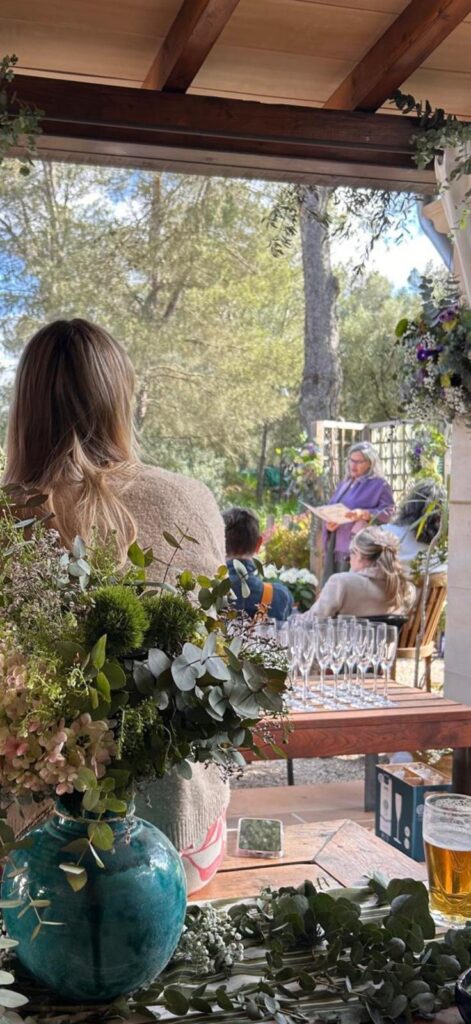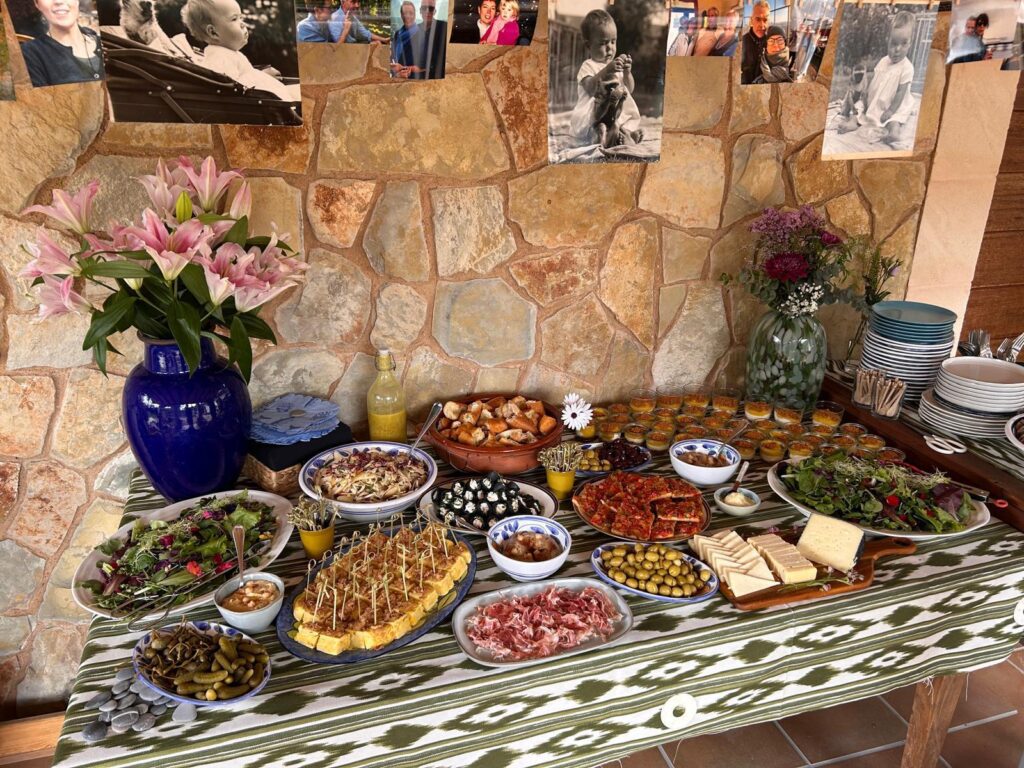Guest post by Glynis German

“I was interested to see a questionnaire prepared by The Good Funeral Guide (GFG) which I found on the End of Life Doula UK’s Facebook page a little while ago.
GFG were gathering information on the topic of Direct Cremations, this low cost approach to funerals, growing in popularity in the UK. As there is very little research in this area, the GFG were keen to understand more about any impact, positive or negative, that direct cremation has on bereaved people, as opposed to the tradition of holding a funeral ceremony when death happens.
I have been living in Spain since 1992 and working as a wedding celebrant since 2012, eventually training as a funeral celebrant with the Fellowship of Funeral Celebrants in 2015. I also trained as an end of life doula with Living Well Dying Well in 2019.
GFG was interested in seeing if there were any themes or trends, whilst I have long been interested to know if there is a negative impact when there is no final goodbye held and whether direct cremation is society’s response to our reluctance to better understand death. Since the pandemic, I too have been wondering about the impact of direct cremations.
The United Kingdom cremated its first citizen in 1885 whilst Spain held their first cremation in 1973, at the request of a foreigner it seems. Spain now has almost 100 cremator ovens and the UK have more than 300. The figures in Spain will only grow as cremation offers an easier solution to the overcrowding of cemeteries and a population who are turning away from the church.
The questionnaire was my starting point for this article as I wasn’t in a position to comment on practises in the UK. However, I felt drawn to sharing my experiences of the positive side to direct cremations in Spain.
Let me explain how things are done in Spain, particularly in Mallorca. It’s important to understand that each region has its own rules, and so the mortuary laws in the Balearic Islands differ from those in Cataluyna or Andalusia and the rest of the country.
The following is useful to know:
- Tradition dictates that a funeral will take place the day, or two, following death.
- This is not a law, it is the custom, understandable with the climate of this Mediterranean island.
- Very few people keep their loved one at home if death has taken place there and almost always, the funeral company will collect the deceased in a matter of hours to take them to the funeral home for eventual viewing.
- It is not possible to collect your loved one in your own vehicle and take them home until the funeral.
- Other religions will have their beliefs respected, such as preparing and dressing the body of someone of the Islamic faith, and the funeral company will allow the family to do this.
- The body is mostly always available to view, either at the cemetery or at the crematorium, and mourners are able to pay their respects.
- The deceased is displayed in the coffin which in turn is kept inside a glass refrigerated cabinet for the viewing, as per the local laws.
- If the family is not Catholic, there will often be no funeral service or Mass.
- The rise of an alternative speaker for the funeral service, among the Spanish, is referred to as a Master of Ceremonies.
- The content for the alternative ceremony, officiated by a Master of Ceremonies, tends towards music, which is played live, and poetry.
- A well prepared eulogy has not yet taken its place as the main focus for this type of ceremony.
- Burial or cremation generally takes place the day after the viewing.
- The family may opt not to attend a cremation, although they are able to, if they wish.
- Burials are above ground and the coffin is placed in a niche or vault which are built on top of another in the cemetery.
- In older cemeteries, one can find mausoleums or family vaults. It is rare to find burial space in the ground.
With all this in mind, I have been seeing a rise in advertising of direct cremations over the last year, mainly as something offered to expats by British funeral insurance providers such as Compare Funerals, Avalon or Golden Leaves – and not so much by Spanish ones whose services differ considerably.
Serving my British community, however, I am seeing a growing number wishing to have a direct cremation. When a family has contracted my services to arrange the funeral, I always attend the cremation, most often on my own. I stay in touch with the family so that, if they wish, they can have a moment of silence wherever they may be at that particular moment of the cremation.

Being a popular tourist destination among the British, sadly, life can take over and death can happen on holiday all too easily. A direct cremation is a better option than repatriation, especially if no insurance was taken out before coming on holiday.
In these cases, the family will often find relief in not having to deal with a funeral there and then. It may be that they have had to spend sleepless nights beside a hospital bed and a direct cremation which is supported by excellent service, allows them to make their way home and make plans for a funeral at a later date. In those instances, the ashes will be present for that ceremony.
More and more families are choosing to have a celebration of life ceremony at a later date after death, either with a celebrant or just among family and friends. This will be held at a different location, such as the deceased’s home or garden, or a favourite place or restaurant on the island.
With an expat community, this is an ideal solution especially if family have to fly into Mallorca from other parts of the world. Seasonally too, a direct cremation can be the ideal solution if one takes into account the high costs of flights and accommodation, especially in the height of the summer season.
Some families choose to scatter the ashes and arrange to take the ashes with them to scatter in different locations. As many of my families are British, they choose to take some of the ashes back home to the UK to be spread there.
There are families who wish to scatter the ashes at sea. This is permitted in Mallorca as long as this is done three nautical miles from the shore. There are a few specialised, nautical companies who offer this service and I recently officiated my first ceremony at sea for the spreading of the ashes.
In an ideal world, the family would understand the importance of using a biodegradable urn as opposed to the ashes being scattered onto the sea. When an urn is dropped into the sea, the family would be able to request the coordinates and forever know where their loved one was.
More and more, I am seeing imagination and creativity for these types of occasions. Families are choosingplaces that are not funeral homes, so often those are places that feel soulless.

I have conducted a ceremony at the foot of a mountain and afterwards, the deceased’s friends took theashes up to the top of the mountain – without me – and held their own moment of prayer. I had written words for them to speak and they found much comfort doing this final goodbye for their good friend.
Sadly, Mallorca has seen a disappearance of the vigil held at home. Just three decades ago, one would die at home and the community would pay their respects there. In the small town where I have lived since 2001, I have never seen this here.
Friends my age – in their 60s – remember when they were kids that they would go to the homes where the deceased was laid out. It was a normal practise and a way for the community to support the family.
I am happy to report that the community still steps up to the plate albeit at the local crematorium rather than the home.
Sadly, the funeral mafia took over and more and more laws were introduced. There are many restrictions on what the family can do at the time of death and if the death happens at home, the first call after the doctor is to the funeral home who will come almost immediately to pick up the deceased and transport them in a van, along with other bodies, back to their premises.
I take faith in seeing the goodness of people at a complicated moment life, especially as I know most of the personnel of the funeral companies I use for my families. I am heartened to know them as good, decent and respectful people who care for my families’ loved ones with great pride.
Whereas in the UK, a family can transport their loved one home from hospital and then to the crematorium or cemetery for the funeral, here in Mallorca the local law allows only one move, this means from home or the hospital to crematorium. Obviously, if the death was sudden and an autopsy was required, the deceased will be moved more than once but it will be from the Medical Forensic Offices to the crematorium
Frustratingly, the funeral industry in Spain is dominated by a handful of large corporations who are buying up smaller, family led companies who have been responsible for the cemeteries in their communities for decades.
Independent, alternative funeral companies don’t exist in Spain. We don’t have any natural burial grounds, although if one is Muslim, they are allowed to bury in the ground if the cemetery can provide for that.
A cardboard or a wicker coffin is not allowed in a cremation and being buried or cremated in a shroud is impossible. I am constantly looking to the UK for inspiration and have the vision that Spain will eventually change.
I hope that when I die, human composting will be an acceptable way to dispose of my body. The work of Katrina Spade at Recompose in the United States is truly heartening for me to witness.
Direct cremation in the UK may have a huge advertising campaign behind it, but perhaps it brings with it the opportunity to think outside the box, no pun intended! We can certainly bring more creativity into saying goodbye and a direct cremation can leave us free to design that on our own terms.
I am optimistic for my own practise in Mallorca. I encourage others to talk about dying and death and to know what their options are. I do this through my work as a death cafe facilitator as well as organising tours to our local crematoria so people can understand what happens there. I offer remembrance ceremonies at significant times of the year, such as All Saints and just before Christmas time.
The natural burial ground movement in the UK has only been around for some thirty years. Celebrants were introduced in Australia in the mid 1970s and human composting is now possible in the US. Practises change and so do our habits. I am looking forward to eventual change in my community and perhaps it’s time to consider how we say goodbye when our times comes.”

References
Number of cremator ovens in Spain & UK: – https://www.panasef.com/estudio-hornos-crematorios/
% of cremations UK 2024: – https://www.cremation.org.uk/progress-of-cremation-united-kingdom
History of first cremation in Spain: – https://tanatosformacion.com/hornos-crematorios-historia-y-normativa/

0 Comments